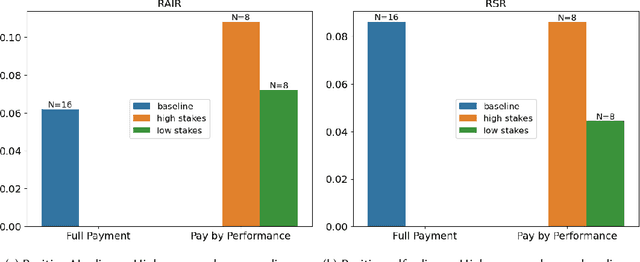Raising the Stakes: Performance Pressure Improves AI-Assisted Decision Making
Paper and Code
Oct 21, 2024



AI systems are used in many domains to assist with decision making, and although the potential for AI systems to assist with decision making is much discussed, human-AI collaboration often underperforms. Investigation into why the performance potential is not realized has revealed many factors, including (mis)trust in the AI system and mental models of AI capabilities on subjective tasks. Performance pressure is known to influence human decision making behavior, yet how it interacts with human-AI decision making is understudied. In this work, we show the effects of performance pressure on AI advice reliance when laypeople (Amazon Mechanical Turk crowdworkers) complete a common AI-assisted task (fake review detection) and thus have inherently low performance pressure. We manipulate performance pressure by leveraging people's loss aversion towards potential monetary gains when completing a task. We find that when the stakes are high, people use AI advice more appropriately than when stakes are lower, regardless of the presence of an AI explanation. Furthermore, when the AI system gives incorrect advice, people correctly discount the poor advice more often when the stakes are higher than when they are lower. We conclude by discussing the implications of how performance pressure influences AI-assisted decision making and encourage future research to incorporate performance pressure analysis.
 Add to Chrome
Add to Chrome Add to Firefox
Add to Firefox Add to Edge
Add to Edge